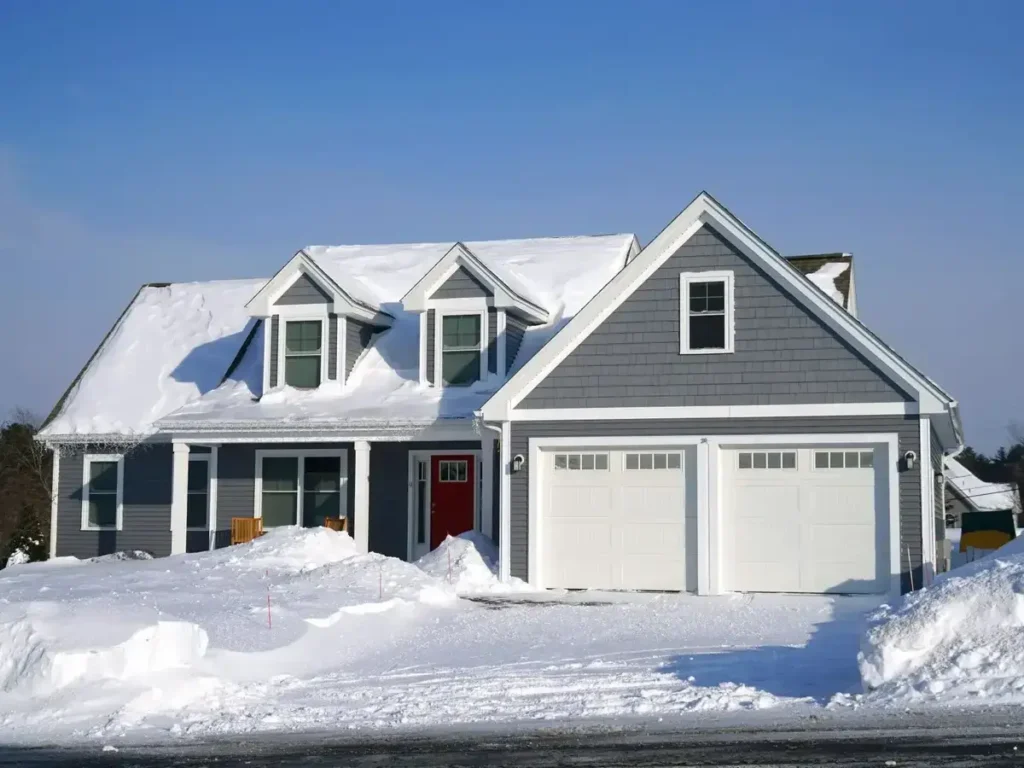
Nothing ruins a winter vacation quite like coming home to burst pipes and water damage. As temperatures drop, unprotected pipes can freeze, expand, and crack, leading to expensive repairs and potential structural damage to your home. Whether you’re planning a holiday getaway or heading to a warmer climate for an extended period, these essential tips will help protect your plumbing system while you’re away.
1. Keep the Heat On
Maintain your home’s temperature at no lower than 55°F (13°C), even while you’re away. While it might be tempting to turn off the heat completely to save money, the cost of repairs from burst pipes far outweighs any potential savings. Consider installing a smart thermostat that allows you to monitor and adjust your home’s temperature remotely.
2. Insulate Vulnerable Pipes
Before leaving, ensure all pipes in unheated areas such as basements, attics, and crawl spaces are properly insulated. Use foam pipe sleeves or heat tape for extra protection. Pay special attention to pipes near exterior walls and in areas with poor circulation.
3. Let Faucets Drip
If you’re expecting extremely cold temperatures, leaving faucets on a slight drip can prevent pressure buildup in the pipes. Focus on faucets connected to exposed pipes or those on exterior walls. Even a tiny trickle can help prevent freezing.
4. Open Interior Doors
Keep all interior doors open, including cabinet doors under sinks and in bathrooms. This allows warmer air to circulate around plumbing fixtures and helps maintain a more consistent temperature throughout your home.
5. Seal Air Leaks
Inspect your home for air leaks, especially around pipe entrances, electrical wiring, and dryer vents. Use caulk or spray foam to seal any gaps you find. Cold air infiltration can quickly freeze nearby pipes.
6. Shut Off Water Supply
For extended absences, consider shutting off your home’s main water supply and draining the system. After shutting off the main valve, open all faucets and flush toilets to remove remaining water from the pipes. This dramatically reduces the risk of freeze damage.
7. Install Temperature Sensors
Smart water leak and temperature sensors can alert you to potential problems before they become disasters. Place these devices near vulnerable pipes and set up notifications on your phone to monitor conditions remotely.
8. Maintain Your Heating System
Before leaving, have your heating system professionally serviced to ensure it won’t fail while you’re away. Replace filters and check that all vents are open and unobstructed to maintain proper airflow.
9. Enlist a House Sitter or Neighbor
Ask a trusted neighbor or friend to check on your home periodically. Provide them with your contact information and the location of the main water shutoff valve in case of emergency. They can alert you to any issues and take immediate action if necessary.
10. Document Your Plumbing System
Before leaving, take photos or videos of your plumbing system and create a basic map showing the location of main shutoff valves. Share this information with your emergency contact. This documentation can be invaluable if someone needs to address an issue in your absence.
Additional Precautions for Extended Absences
For longer trips or vacation homes that will be unoccupied for extended periods, consider these extra measures:
- Install an automatic emergency water shutoff system that activates when leaks are detected
- Drain water heaters and water softening systems
- Pour non-toxic antifreeze into toilet tanks and bowls (after turning off water and draining)
- Remove outdoor hoses and cover exterior faucets with insulated covers
Be Prepared for Your Return
When you return home:
- Inspect all visible pipes for signs of freezing or damage
- Turn the water back on slowly if you shut it off
- Run each faucet briefly to ensure proper flow
- Check for leaks or unusual sounds in your plumbing system
By following these preventive measures, you can enjoy your time away without worrying about frozen pipes and potential water damage. Remember, a little preparation can save thousands in repairs and prevent the headache of dealing with frozen pipes from afar.